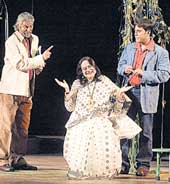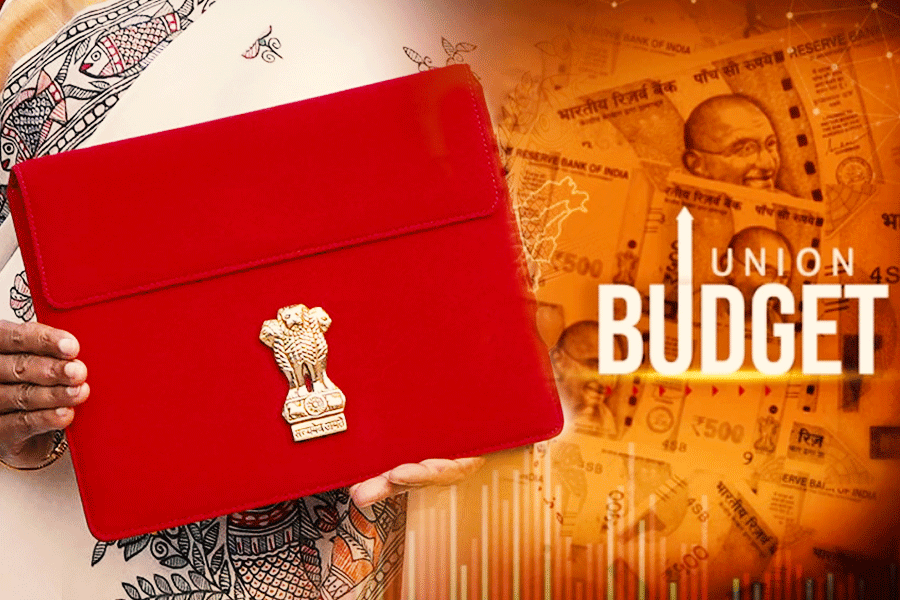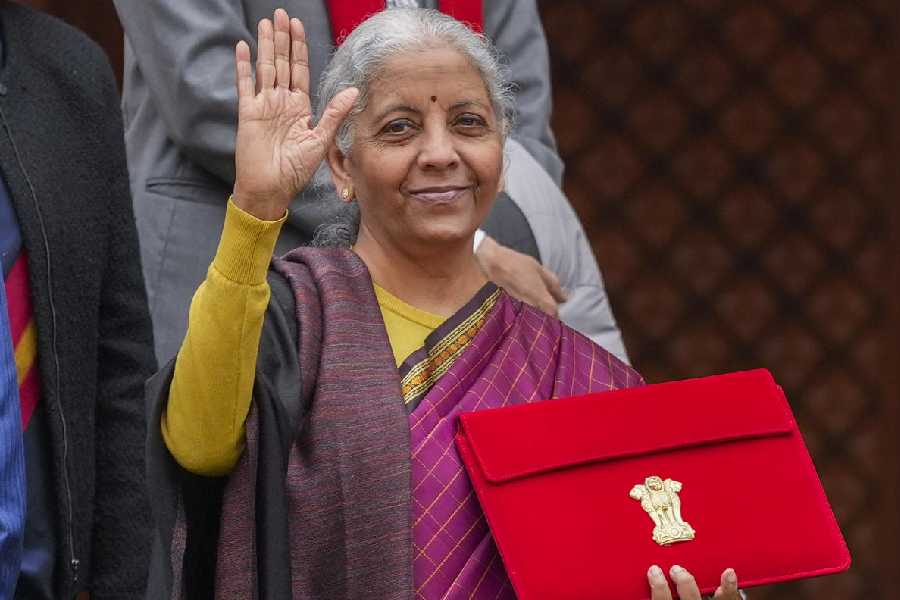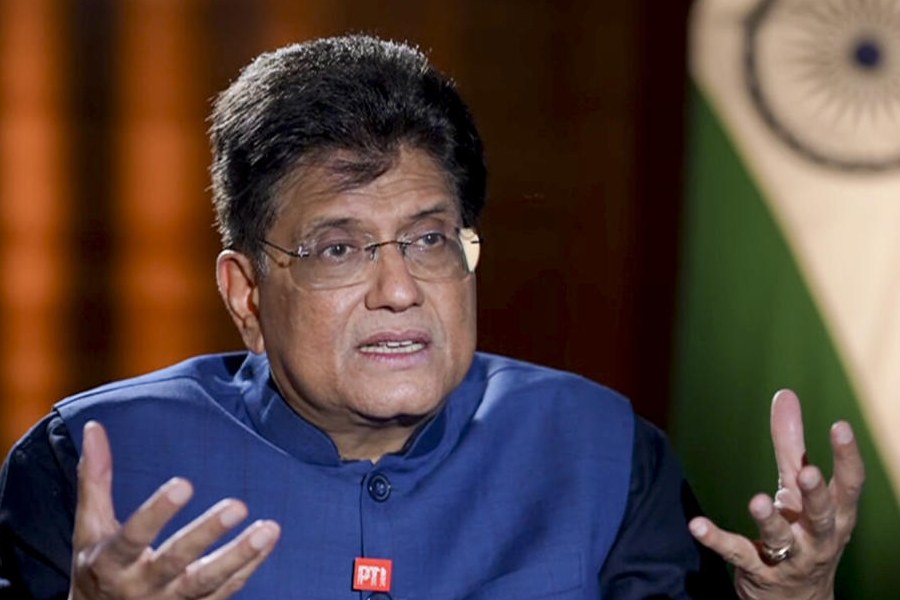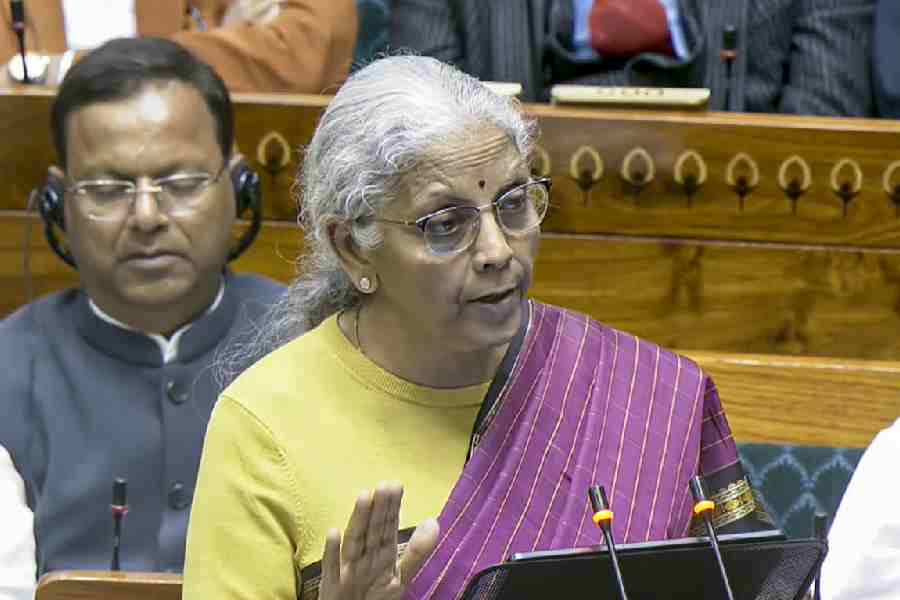|
|
Cardenio is the El Dorado of Shakespearean texts: the lost drama written jointly with John Fletcher in 1612-13 that, if discovered, would grant its finder instant immortality. The palaeographer, Charles Hamilton, claimed in 1994, to immediate scholarly derision, that The Second Maiden’s Tragedy, ascribed to Thomas Middleton, was indeed Cardenio, and the sudden spotlight on this text’s intriguing theatrical Grand Guignol led to several productions, advertising themselves as Shakespeare’s lost work.
Perhaps to counter this, celebrity professor Stephen Greenblatt devised a project to reconstruct Cardenio as a contemporary play in different cultures, based on the source story from Cervantes’ Don Quixote. He composed one himself,with experimental American playwright Charles Mee, and invited others to do so, too. Following a Japanese version, Renaissance guru and debutant dramatist Sukanta Chaudhuri wrote Jaha Chai (a consciously Shakespearean title in Bengali), Nandikar’s latest production.
As in Cervantes’ episode, a husband (Goutam Halder) foolishly decides to test the virtue of his wife (Sohini Sengupta-Halder) by persuading his best friend (Debsankar Halder) to try to seduce her. The attempt almost backfires, because the intimacy that grows between Sohini and Debsankar makes Goutam jealous. Such a situation can develop into unadulterated slapstick, like the Marx Brothers, or high tragedy, like Othello.
More likely in Shakespeare’s case, given the nature of his last romances and valedictory collaborations with Fletcher, Cardenio would have turned out a psychological study of the green-eyed monster, though ending happily. We cannot erase the memories of Leontes, morbidly suspicious of his queen’s relationship with his best friend, or the scepticism in Henry VIII or the tragicomic take on the Chaucerian Two Noble Kinsmen.
Instead, Nandikar leads us merrily down the garden path — literally, thanks to Sanchayan Ghosh’s sylvan décor — of romantic farce, creating an effect closer to the Bard’s earliest Plautine comedies. The first half is eminently risible, as when co-director Goutam tiptoes upstage straining to overhear the ‘test’, or in his mannerism of kneading the hands of those conversing with him. Situation comedy is at its best here.
Peaking early, however, it has nowhere to go in the second half except wind down to its conventional resolution. Despite the playfulness, the insertion of a play within the play, now a hackneyed device in theatre, adds little. The tense possibilities of an extra-marital friendship are swept behind the creepers, and the blame shifted to Goutam’s ex-girlfriend, who becomes a potential threat to Sohini, but convenient to pair off Debsankar with, much to everyone’s relief.
Goutam’s affected stage voice may fit his moronic part, but has become self-parodic by now. As his mother, Swatilekha Sengupta acts much better, cleverly putting on an eccentric attitude that convinces us as to where he inherited his traits from. Debsankar and Sohini give dependable performances as usual. Most of the other roles are dispensable in the script itself, including that of Goutam’s father, played by co-director Rudraprasad Sengupta, who merely stands around, smiling benignly. But if you want to laugh, Jaha Chai does the trick.

